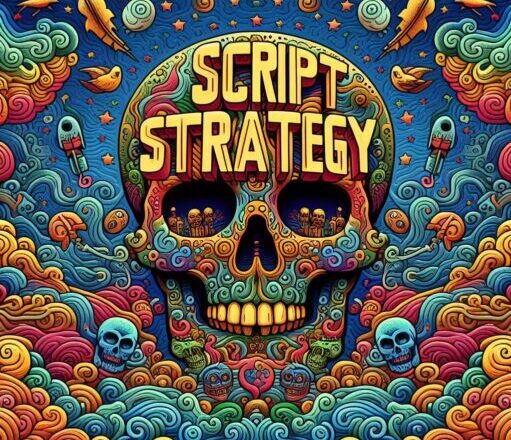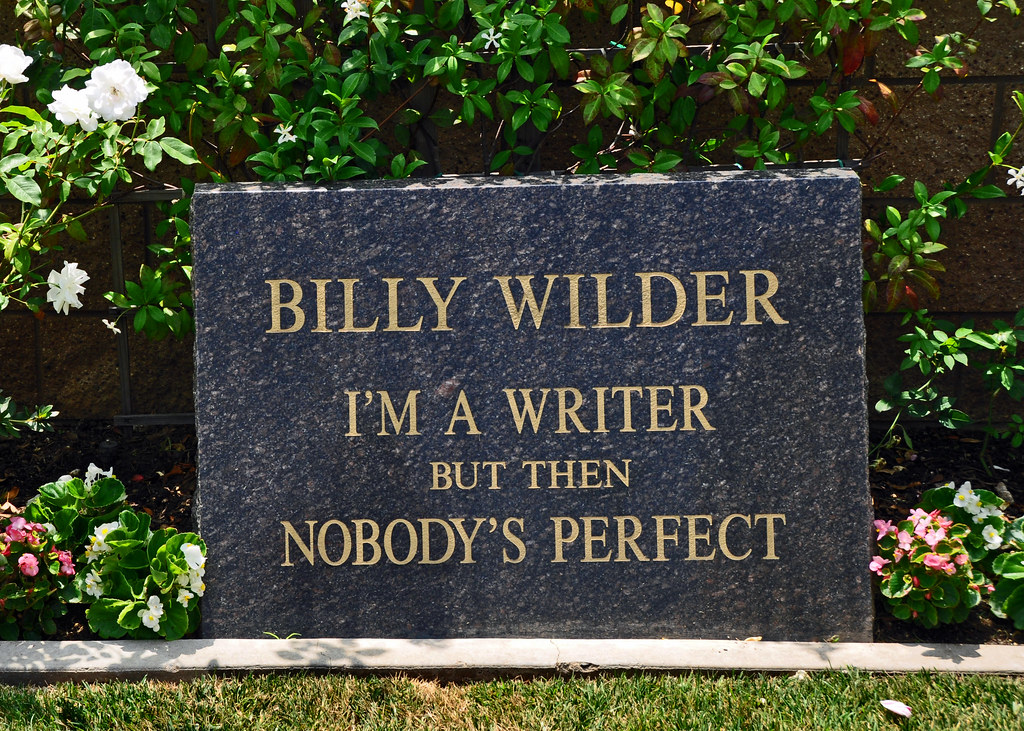Screenwriting as a Tool for Critical Thinking

It’s no secret that we’re in an age where critical thinking takes a back seat to hot takes, the overweening bullshit of narcissist blowhards on both extremes of the political spectrum, and the stupid-making rectangles in all our pockets.
What’s worse, the things that used to make a certain amount of sense* – logical consistency, fact checking, deductive reasoning, etc. – have been co-opted by a bunch of CrossFit gym owners and disgraced members of great families who love to tell people to “do the research.”
It’s only that “the research” can be whatever the hell you want it to be given that we live in a post-truth world, where “we’ve had enough of experts,” according to a particular UK politician. (From time to time, Oxford graduates some real A-grade dumbasses.)
Basically, we’re fed a lot of total horseshit that makes good narrative sense, usually because it’s nice and simple. It avoids all that pesky stuff like caveats, gray areas, counterexamples, and, frankly, most rational thought. If it sounds good, it must be true. Amirite?
(No. No, you’re not right.)
Just navigating the day-to-day requires taking everything you see or hear with a colossal grain of salt (my doctor has put me on blood pressure meds).
One of the best approaches I have found–and this comes as a person who was originally trained in the philosophy of science–comes from using a dose of the poison as a cure: use narrative as a tool for learning to think critically.
The best proponent of this is Angus Fletcher, professor at Ohio State’s Project Narrative and author of Storythinking and Wonderworks, and lecturer for the Great Courses’ Screenwriting 101 course (which comes highly recommended).
Let’s discuss three ways that Fletcher proposes that we might consider narrative cognition and its applications in education, military strategy, and organizational leadership—in short, to improve (rather than hijack) our critical thinking skills:
*Always to be considered tools rather than absolutes; you might, in fact, be wrong. As might I.
(Links are affiliate)
1) Hypothetical Thinking for Cognitive Flexibility
Key Concept: Narrative trains the mind to simulate multiple realities.
Logical argument or deduction by definition seeks a single correct conclusion. Narrative, on the other hand, encourages us to imagine multiple outcomes, perspectives, and emotional responses.
As we construct–or even read–a story, we mentally model characters’ motivations, predict consequences, and imagine alternatives.
Fletcher calls this narrative simulation—this sort of cognitive rehearsal builds mental agility.
Critical Thinking Benefit:
- Enhances ability to entertain opposing viewpoints (without collapsing into indecision).
- Encourages divergent thinking and creative problem-solving.
- Builds empathy—not just emotionally, but strategically (i.e., “If I were this person, what would I do?”).
One can imagine why this might be effective for understanding the position of someone whose life or background is different from one’s own.
It’s little surprise that the banned book lists from certain states contain many books written from the perspective of various stripes of marginalized people…
Example:
When a student rewrites the ending of, for example, Macbeth, this is not simply a student “being creative.”
Rather, the student is demonstrating the capacity to consider complex variables within the narrative and imagine alternate decision trees all the way to conclusion.
2) Narrative Encourages Pattern Recognition Without Overreliance on Abstraction
Key Concept: Stories help us notice and test cause-and-effect patterns without reducing them to formulas.
There’s something rather vital here.
I’m a huge fan of formal logic (and in fact I still teach it from time to time). The problem with formal logic, as with mathematics, is that its level of abstraction is enough to make it fairly inaccessible to a wide swath of the population.
It’s the old A ⇒ B works, while B ⇒ A doesn’t (necessarily) work sort of demonstration.
This is great in the abstract–particularly if you’re after a formula where you can consistently plug variables in. Perfect if you’re building Excel macros. Less useful in real life. (Do not try this in a fight with your boyfriend.)
On the other hand, however, narrative allows us to reason through particular circumstances. This means we can recognize how decisions and consequences play out in specific contexts that feel real (even if they are fictional).
This is critical for solving real-world problems where–unsurprisingly–abstract logic often fails because of unpredictable human behavior. I mean whoever came up with the idea of “the rational actor” has obviously never met an actual person before.
Critical Thinking Benefit:
- Sharpens inductive reasoning (learning from specific examples, which can be ported to wider circumstances*).
- Improves causal reasoning in messy, ambiguous situations.
- Encourages “what if” exploration rather than rigid binary answers. You get to try things out and see how they work. It’s like a thought experiment (where no cats have to die).
Example:
A student tracks the contributing factors that lead to a certain character’s downfall in a novel: hubris, poor timing, betrayal, etc. This illustrates how causes can layer and produce complex effects that would otherwise resist a tidy conclusion.
Think a perfect storm rather than one devastating gust of wind.
*To be perfectly transparent, I am sympathetic to Popper and arguments against induction. It is admittedly imperfect–possibly fatally so–but fuck it. It’s better than whatever dumbshit conspiracy CrossFit Lady is spouting today.
3. Narrative Cultivates Tolerance for Ambiguity and Uncertainty
Key Concept: Story thrives on tension, conflict, and the unresolved.
We’ve discussed this before in the realm of Hollywood narrative.
But Fletcher makes the point that educational systems, too, love closure. They want “right answers” and logical endpoints. Not least because that shit is easier to grade. Believe me–I do this for a living.
However, the world is full of difficult, complex, ongoing problems that resist an easy, total, or clear solution. In many cases, an improvement might be possible–you can level up but the problem might still exist.
Narrative, particularly when we focus on open-ended or ambiguous storytelling, primes us to tolerate uncertainty without freezing, getting all aggro, or wallowing in cynicism.
Critical Thinking Benefit:
- Prepares students for real-world decision-making–particularly where data is incomplete.
- Promotes intellectual humility by embracing the unknown.
- Strengthens resilience and adaptability under pressure.
Example:
Analyzing the The Sopranos’ famous cut to black ending trains a student to live inside a complex ethical question without jumping to conclusions.
You can see how this sort of training is (or perhaps ought to be) vital for leadership, diplomacy, and decision-making in complex contexts such as a hospital.
Narrative as Cognitive Technology
Fletcher explores how narrative is a cognitive technology that we as human beings have developed to live through uncertain, difficult, complex times while remaining clear-headed.
Narrative expands the mind’s ability to simulate, evaluate, and withstand complex information. If that isn’t critical thinking, what is?






